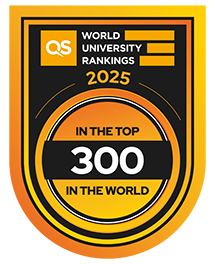Dalhousie advanced into the top 18 per cent of universities globally in one of the world’s most-watched annual university rankings.
 The university placed at 275 out of a record 1,503 institutions published in the 2025 QS World University Rankings, up 23 spots from the previous year thanks to improvements in a handful of key research and global-engagement metrics.
The university placed at 275 out of a record 1,503 institutions published in the 2025 QS World University Rankings, up 23 spots from the previous year thanks to improvements in a handful of key research and global-engagement metrics.
Dal also performed well in Canada, maintaining its spot at 12 out of 30 institutions ranked. The university once again remained the top-ranked institution in Atlantic Canada.
How it works
The QS rankings measure performance across six categories broken down into nine key indicators that carry different weights.
- 'Research and Discovery' accounts for 50 per cent of the ranking, with two indicators: Academic Reputation (30 per cent) and Citations per Faculty (20 per cent)
- 'Employability and Outcomes' accounts for 20 per cent, with two indicators: Employer Reputation (15 per cent) and Employment Outcomes (5 per cent)
- 'Learning Experience' accounts for 10 per cent, with a single indicator: Faculty Student Ratio (10 per cent)
- 'Global Engagement' accounts for 15 per cent, with three indicators: International Faculty (5 per cent), International Research Network (5 per cent), International Students (5 per cent)
- 'Sustainability' account for 5per cent with a single eponymous indicator: Sustainability (5 per cent)
To calculate a university's overall rank, QS evaluates how an institution compares to global median results on each indicator. It assigns a score to institutions for each indicator based on how they scale against the top-performing university (which is assigned a perfect score of 100).
How Dal stacked up
Dal's biggest improvement this year was in Citations per Faculty, where it rose 84 places to 239 globally. The 2025 results were calculated using figures from Scopus — a globally recognized citation database — for the period 2018-2023. Dal was credited with 223,301 net citations (excluding self-citations) for this period. When normalized per faculty member, that’s more than three times the global median. Dal's top areas for citations were Life Sciences & Medicine and Engineering & Technology.
Like last year, Dal performed exceptionally well on the International Faculty indicator. It achieved a near-perfect score of 99.9, increasing 11 spots to rank 86 globally. Dal has a ratio of 50.5 international faculty on staff per 100 faculty members, well above the global median of 7.8.
Dal rose 30 spots in the International Research Network indicator to 369, achieving a score of 77.4. The indicator measures an average index across five broad subject areas. At 53.5, Dal's index sat nearly 13 points above the global median of 40.8.
Indicators where Dal fell but still performed favourably compared to other institutions included Sustainability (down 48 spots to 109 but with a score of 87.9) and International Students (down two spots to 189 but with a score of 74.6).

